Explore Quantum Computing – webinars
Explore Quantum Computing is a series of webinars hosted by University of Edinburgh allowing companies and organisations to hear directly from leading researchers from our partner institutions in Scotland.
The series features academics from different areas of expertise sharing their insights about quantum computing, discussing the latest advances, giving an outlook to the future, and reflecting on what this may mean for industry partners.
Explore webinars offer a unique opportunity for organisations across multiple sectors to learn about the research, expertise, and capabilities in quantum computing in Scotland.
January 2023 Explore Quantum Computing webinars:
-
When, where and how may we see quantum advantage? Dr Oliver Brown & Prof Andrew Daley 18 January 2023
-
Next generation hardware platforms. Dr Alessandro Rossi & Professor Martin Weides 24 January 2023
- Software for realising quantum advantage. Prof Elham Kashefi 31 January 2023
Access webinar recordings in here.
Are you looking to collaborate with leading experts on Quantum Computing in Scotland? Submit your quantum computing challenge to AIMday Quantum Computing on 18 April 2023.
When, where and how may we see quantum advantage?
Dr Oliver Brown & Prof Andrew Daley, 18 January 2023
Quantum computing has the potential to offer exponential benefits through its applications, what is known as quantum advantage. The technology is maturing and now is the time to consider what businesses and intractable problems may be ripe for quantum advantage. Quantum computers already have the power to access challenging scientific problems and have promising applications across a variety of industrial sectors. This webinar will outline the joint capabilities of the partners of the Quantum Computing Applications cluster including key high performance computing challenges as well as sector specific applications, discussing when advantage from quantum accelerated computing may be seen, which application areas that can be expected to most benefit from quantum computing, and how to integrate quantum computers with classical computing.
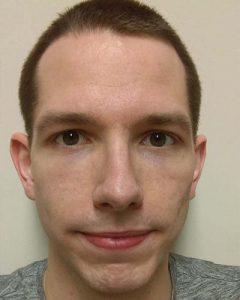
Oliver joined the Edinburgh Parallel Computing Centre (EPCC) after completing his PhD in Physics at Heriot-Watt University during which he developed software for calculating the stationary state of dissipative many-body quantum systems using matrix product states. Since joining EPCC, his work has mainly focused on programming models for heterogeneous exascale computing, particularly through my involvement in the INTERTWinE and EPiGRAM-HS Horizon 2020 projects. He now leads EPCC’s quantum applications group focusing on when, where and how to use quantum computers.
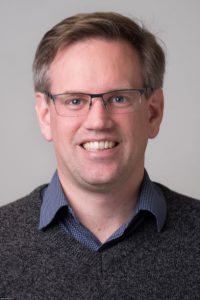
Andrew’s research is presently focussed on implementations and applications of quantum computing and quantum simulation. He is developing both new architectures for highly controlled quantum systems, and protocols (including software and algorithms) to apply these to problems of interest also outside of many-body physics. On the side of quantum simulation, over the course of the last 10 years, advances in experiments with ultracold quantum gases have made possible the realization of strongly interacting systems, which can be used to explore complex many-body phenomena. Motivated by and in connection with these experiments, Andrew explores novel phenomena on a theoretical level with analytical and numerical techniques. On the level of applications, he has ongoing collaborations with experimentalists implementing quantum computing, especially with neutral atoms and trapped ions and is also working with colleagues in other disciplines and in industry in order to identify potential near to medium term applications beyond basic physics.
Next generation hardware platforms
Dr Alessandro Rossi & Prof Martin Weides, 24 January 2023
The Quantum Computing Applications cluster is at the forefront of developing the next generations of quantum computing hardware with expertise across the major hardware platforms of Neutral Atoms, Superconducting qubits, and semiconductor qubits. This webinar will outline the hardware expertise across the participating institutions and how it can be leveraged by partners developing hardware devices, looking for expertise to solve technical problems or wanting access to fabrication and lab facilities. The two leading speakers will highlight the University of Glasgow programme in superconducting circuits and the University of Strathclyde work on semiconductor qubits, outlining the state of the art, and current and expected capabilities of the different platforms.
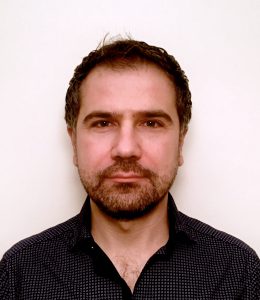
Alessandro is a UKRI Future Leaders Fellow and a Senior Lecturer in the Department of Physics at the University of Strathclyde. He is jointly appointed with the National Physical Laboratory, where he holds a Measurement Fellowship. His research interests span from quantum computing to quantum electrical metrology in semiconductor systems, as well as development of hybrid super/semi-conductive nanotechnology. Alessandro graduated from the University of Cambridge in 2011 with a doctoral dissertation on microwave-assisted single-charge transport in quantum devices. Following the award of his PhD, Alessandro worked in the area of silicon quantum information and on the development of semiconductor-based single-electron devices to generate ultra-stable electric current. To date, Alessandro has raised competitive research income from British, European and Australian funding agencies for a combined amount of approximately £3m.
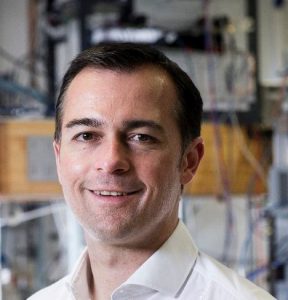
Martin is Professor of Quantum Technologies in the James Watt School of Engineering at the University of Glasgow. He is an expert on experimental solid-state physics at the interface with material science and electrical engineering. His main research interest lies in coherent nanoelectronics, with a focus on quantum spintronics, hybrid qubit systems and quantum computing, simulation, and sensing with superconducting quantum circuits. The spectrum of published work ranges from quantum information processing, Josephson junctions, material science, to microwave resonators and qubits. Martin was elected a Fellow of the Institute of Physics in 2019, serves on the editorial board of Applied Physics Letters since 2019 and was elected to the European Society for Applied Superconductivity board in 2021.
Software for realising quantum advantage
Prof Elham Kashefi, 31 January 2023
The Quantum Applications Cluster partner institutions are leaders in the development of software for quantum computing and its applications, with capabilities spread between the University of Edinburgh Quantum Informatics Group, which is the largest of its kind in the UK, and the University of Strathclyde, which specialises in specific connections to near-term hardware and scientific computing. The expertise ranges over benchmarking, verification, certification, programming languages, and quantum networking. Join this webinar for an outline of the expertise and a highlight on the plans for a quantum software lab at University of Edinburgh. This talk will be of special interest to partners building software stacks or those interested in hybrid computing, and looking for expertise in program languages, noise characterisation, error correction, benchmarking and verification, integration with HPC, cryptographic protocols, and applications including machine learning and simulation.
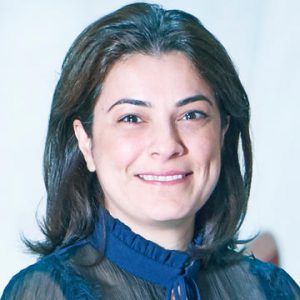
Elham is Professor of Quantum Computing at University of Edinburgh and Directeur de recherche au CNRS at LIP6 Sorbonne Universite. She has recently been appointed as Chief Scientist for the National Quantum Computing Centre (NQCC). She co-founded the fields of quantum cloud computing and quantum computing verification, and has pioneered a trans-disciplinary interaction of hybrid quantum-classical solutions from theoretical investigation all the way to actual experimental and industrial commercialisation. She has been awarded several UK, EU and US grants and fellowships for her works in developing applications for quantum computing and communication. She is the senior science team leader of the Quantum Computing and Simulation Hub and currently leads the Quantum Informatics research group at Edinburgh, one of the largest global quantum software teams (with 40+ members).
If you have any questions please contact the organisers at EPSRCIAA@ei.ed.ac.uk